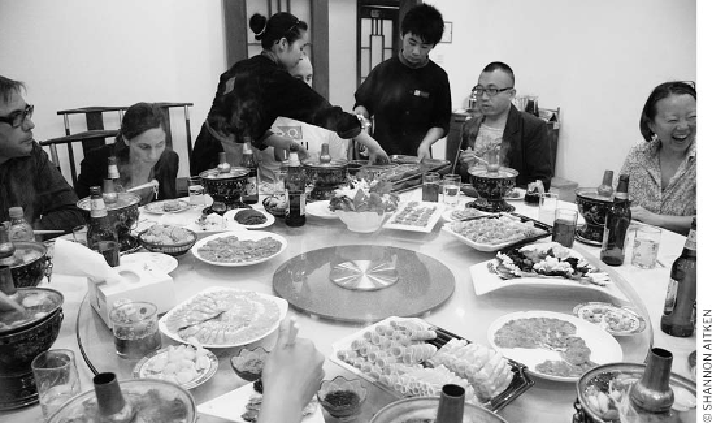Travel Reference
In-Depth Information
Chinese people love to eat out in large groups, and hotpot is one of the most popular ways to do that.
Paying for the bill is perhaps the most obvious point of difference. These days, in purely
social situations, younger people occasionally like to go Dutch, which they call
AA-zhi
(
AA
制
), but it's still not the norm. More often one person will take responsibility for both
ordering the entire meal and paying the bill, and this is usually the person who initiated the
dinner. If this hasn't been made clear from the start, an ostentatious display of determin-
ation to pay the bill can often take place at the end of the meal, occasionally with people
yelling and semi-wrestling in front of the patiently waiting waiter. It can actually be seen as
impolite not to offer to pay the bill, even if you're the invited guest. Those wishing to avoid
the bill scene at the end of the meal can discreetly pay the bill by making a bogus bathroom
dash. If you do end up being the recipient of the meal, it's quietly expected that you'll even
things out with a counter invitation at a restaurant of similar or higher standing in the near
future.
One final example of dramatically different etiquette is the way in which you get the
waitstaff's attention. While in the West it's standard to raise a hand or simply make eye
contact and nod, in China it's the norm to call out a loud and clear
“fúwùyuán!”
(“Waiter!”)
Waitstaff don't routinely patrol restaurants, but do instead listen out for a call. Once you get
used to it, you'll find it extremely practical and efficient, and when you go home to your

